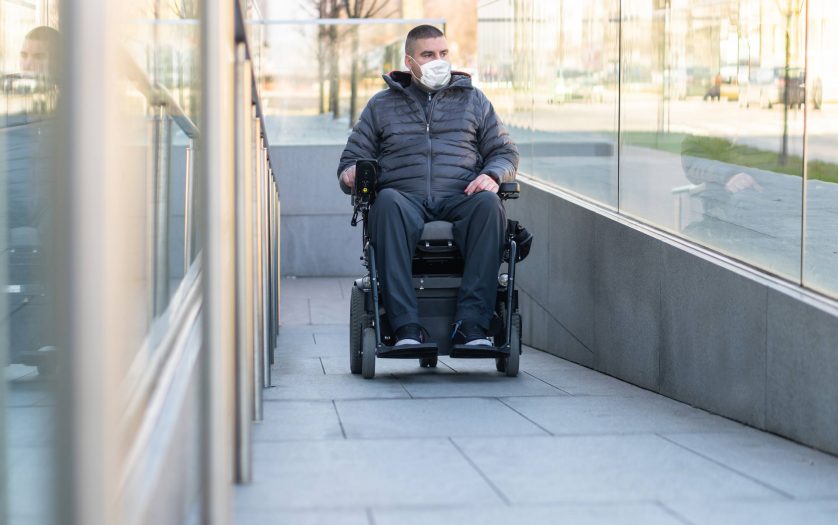
COVID-19 has wrought havoc on the global economy and the world’s public health systems. People with disabilities are more likely to suffer severe cases of the disease.
Experts advocate in this special issue of the Journal of Vocational Rehabilitation that vocational rehabilitation across the major life phases of health, work, and education must focus on access to technology and home-based employment and ensure people with disabilities are prepared for the new global workplace.
To date, 500,000 Americans who have acquired COVID-19 have died, making it the current leading cause of death in the United States with over 2.4 million deaths worldwide.
Individuals with some types of disabilities, especially those with multiple disadvantages, and depending on race/ethnicity, age, socioeconomic status, and gender, have been disproportionally affected by the pandemic.
They are more likely to acquire COVID-19 than the general population and more likely to experience severe or fatal symptoms. They are also affected by the changes in the workplace.
This special issue highlights research and scholarship that address important implications of the COVID-19 pandemic and its aftermath for the disability community and for rehabilitation professionals. It is guest-edited by Phillip D. Rumrill, Jr., Ph.D., CRC, University of Kentucky, Lexington, KY; Lynn C. Koch, Ph.D., CRC, University of Arkansas, Fayetteville, AR; and David R. Strauser, Ph.D., University of Illinois, Urbana-Champaign, Champaign, IL.
In the United States, all non-essential personnel whose employment was not terminated began working remotely from home in March 2020. However, individuals with developmental disabilities employed in community jobs during this time experienced several barriers.
Most of these individuals work in entry-level positions such as restaurant and retail jobs, and these were some of the first industries to shut their doors during the pandemic. This population experienced a greater likelihood of being out of work and without pay early in the pandemic.
“The experience of disability and how work is conducted in the American economy are undergoing new shifts in response to the pandemic,” explained the co-Guest Editors. “The nature of work has changed dramatically during the pandemic, and it may remain altered for many years to come. There are fewer available jobs due to business closings in many sectors of the economy, however, there are more jobs available in other sectors such as technology, information processing, healthcare, food preparation and delivery, and manufacturing.”
Many people with disabilities are at increased risk of experiencing severe symptoms of COVID-19, and self-isolation to protect themselves from contracting the virus can lead to loneliness and despair. Vocational rehabilitation responses during the pandemic must focus on access to technology and home-based employment, as well as the need for people with disabilities to avoid contracting the virus.” said Phillip D. Rumrill, Jr, PhD, CRC, Co-Guest Editor, University of Kentucky.
Articles in this issue address considerations for individuals with developmental disabilities across health, work, and education, such as:
- The effects the pandemic has had on the employment of individuals with intellectual and developmental disabilities
- Results of a COVID-era survey revealing significant levels of worry about health and job loss among people with disabilities and other health conditions
- The employment impact of the pandemic on Americans with multiple sclerosis and differences in the employment experiences and concerns of Latinx Americans and Caucasian Americans with multiple sclerosis applied to the current global public health crisis
- Understanding the impact of isolation and social distancing among working-age adults with spinal cord injuries
- Validity and clinical utility of a scale to measure work adjustment among people with disabilities during COVID-19
- Differential service patterns and employment outcomes among transition-age youth with learning disabilities who received services from the state-Federal Vocational Rehabilitation program, including a discussion of the COVID implications of their findings
- Impact of universal design, a set of strategies that creates places and resources that are accessible to all








